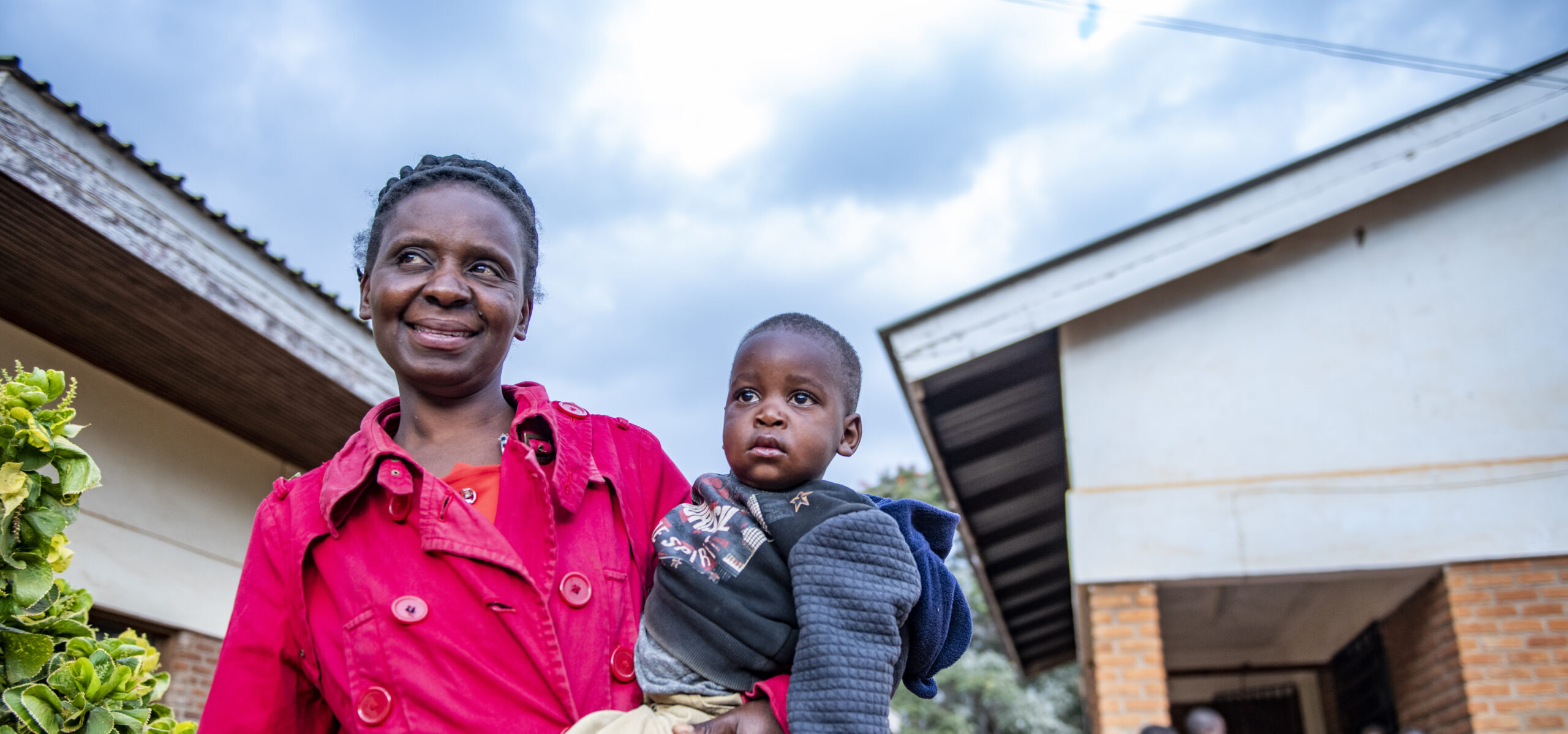About 500 children are infected with HIV every day. More than 90% of these children are infected when the virus is passed from their HIV-positive mothers through pregnancy, delivery, or breastmilk. When an HIV-positive pregnant woman or mother is tested and treated, mother-to-child HIV transmission is preventable. Elizabeth Glaser unknowingly transmitted HIV to her two children during pregnancy and breastfeeding. Over 30 years ago, she inspired a movement that led to the near elimination of pediatric AIDS in the United States and Europe. Today, the Elizabeth Glaser Pediatric AIDS Foundation (EGPAF) continues to work toward elimination of pediatric AIDS by expanding prevention of mother-to-child transmission of HIV (PMTCT) programs in countries hardest hit by the epidemic.
Working hand-in-hand with local partners in supported countries, EGPAF has averted nearly 380,000 infections in children through provision of PMTCT. This has been accomplished through a holistic approach to expansion of family planning, availability of diagnostic technology, and implementation of effective treatment regimens, as well as involvement of communities. From conception through postnatal care and beyond, EGPAF ensures every woman successfully navigates through a continuum of health services:
 Sexual and Reproductive Health
Sexual and Reproductive Health
In the last year, EGPAF has met the family planning needs of nearly 1,900,000 individuals across our supported countries
Access to sexual and reproductive health, including integrated family planning counseling and commodities, condoms, voluntary medical male circumcision, HIV testing, antiretroviral therapy, and pre- and post-exposure prophylaxis, is a critical component to prevention of HIV and the health of families. EGPAF programs ensure that clients have access to these services and commodities. As HIV infections among young women (aged 15–24 years) are 60% higher than among young men, we empower young women to understand their reproductive rights, and we strive to empower young girls and boys to make healthy family planning decisions.i

HIV Testing
Nearly 9 million individuals were tested for HIV through EGPAF-supported projects
For pregnant women who do not yet know their HIV status, HIV counseling and testing at their earliest prenatal appointment is the first and most critical step in reducing mother-to-child transmission. By knowing her HIV status, an expectant mother can be linked to essential and effective lifelong treatment that will reduce her viral load and protect her health and the health of her baby.

Initiation on Lifelong Antiretroviral Therapy
EGPAF is currently supporting the treatment of over 1.8 million HIV-positive individuals
Adherence to lifelong antiretroviral therapy can reduce the risk of HIV transmission to an infant to less than 5%. For women who are HIV-positive and wish to have children, our programs offer steps that virtually eliminate risk of transmitting HIV infection from mother to baby. We also help countries implement globally-recommended PMTCT and treatment guidelines, which endorse access to treatment throughout the life of a pregnant woman identified as HIV-positive. To ensure lifelong access to ART, EGPAF offers treatment through various models of differentiated care, including more specialized care for those at highest risk of treatment interruption.

Safe Childbirth
In over 15,000 sites across supported countries, EGPAF has, since its inception, trained health workers, implemented innovations, and improved infrastructure to create a safe and healthy space for families
Safe childbirth is an important consideration for all expectant mothers and is particularly critical for HIV-positive women. Yet many women in our supported settings, throughout sub-Saharan Africa, lack access to health facilities at delivery, particularly those offering obstetric emergency services. EGPAF supports policy development to ensure greater access to maternal and child health, trains health care workers on safe delivery, and enhances infrastructure to accommodate safe childbirth. We offer community-based counseling to promote skilled deliveries and assistance to women who live a long way from health clinic settings.
Postnatal Care
Per year, EGPAF supports access to ART among nearly 90,000 children
EGPAF works within maternity and child wellness clinics throughout our supported countries to offer a variety of integrated postnatal care services. We work hand-in-hand with supported antenatal care clinics to promote safe infant feeding practices in and outside the context of HIV, early child development education, testing for opportunistic infections (including childhood TB), and wellness and immunization
services.
Children who are infected with HIV are at very high risk of mortality, which peaks at just 8 to 10 weeks of life. EGPAF has expanded access to birth testing and early infant diagnosis through use of point-of-care (POC) technology. Procuring this technology, training non-specialized health workers and mobilizing women and children across nine countries has resulted in the testing of over 130,000 infants. HIV status results once took months to return to mothers; through this technology infant HIV status is now returned on the same day the child was tested, and on that same day, lifesaving treatment is offered to those who are HIV-positive.
We can get there through investments in adolescent and youth programs (particularly those which empower young women), community mobilization and stigma reduction, broader access to pre-exposure prophylaxis, diversification and advancement of differentiated service delivery, and through further expansion of point-of-care diagnostic technology.
1 The Joint United Nations Programme on HIV and AIDS. 2020 Data. Available: https://www.unaids.org/sites/default/files/media_asset/2020-UNAIDS-data_en.pdf. Accessed January 2021.





